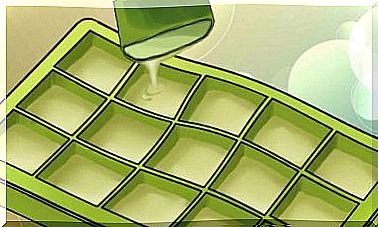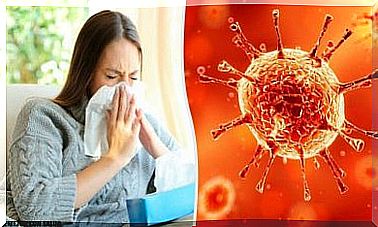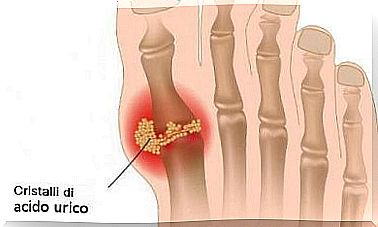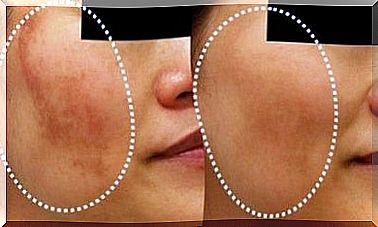Cholesterol In Seafood: Is There To Worry?
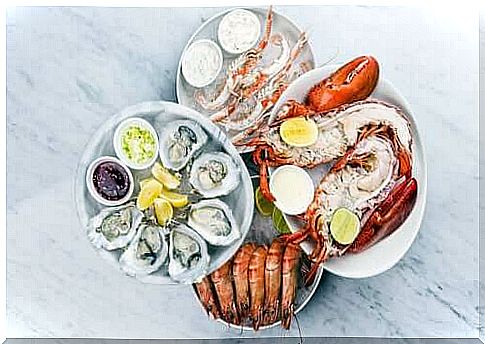
Like other animal products, seafood also contains cholesterol in their composition. However, the presence of cholesterol in seafood need not be a cause for concern.
Until a few years ago, it was recommended to limit the intake of these foods, as it was believed that they could modify the serum values of LDL lipoproteins. However, it has been shown that this is not the case.
As a result, current dietary guidelines are much more lax regarding the intake of fatty foods. Indeed, it is widely recognized that the consumption of polyunsaturated fats has beneficial effects on the lipid profile.
Food plans therefore provide for different sources of saturated fat or foods that are naturally high in cholesterol, such as seafood.
Cholesterol and cardiovascular disease
The latest scientific studies have questioned the correlation between total cholesterol levels and the risk of developing cardiovascular disease. The probabilities of atheroma, or plaques of fat, are instead linked to the oxidation of a small portion of LDL cholesterol, as indicated in an article published in Current Medicinal Chemistry .
The purpose of current food plans is therefore to prevent the aforementioned oxidative process. To this end, they focus on consuming phytonutrient-rich vegetables with antioxidant potential.
Despite this, lipid profile modulation can be helpful in protecting cardiovascular health. This means that it is not necessary to eliminate foods that contain cholesterol, such as seafood, from the diet, but to moderate the consumption of certain food groups.
Avoid trans fats to regulate cholesterol
In order to increase the level of good cholesterol, HDL, to which cardio-protective properties are attributed, it is essential to limit the intake of trans fats. These include ultra-processed, fried and breaded foods.
When vegetable oils are subjected to high temperatures, for example during frying, it favors the creation of inflammatory compounds, which are harmful to health.
Their regular intake is not only linked to a worsening of the lipid profile, but also to an increased risk of developing complex diseases, as stated in an article published in the journal Cardiology .
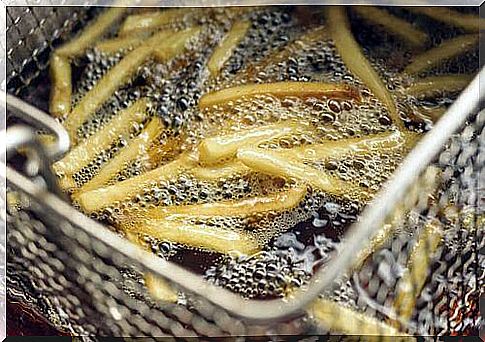
Cholesterol in seafood and foods that improve the lipid profile
Just as some foods can worsen cardiovascular health and lipid profile, others improve both.
Omega 3 fatty acids, responsible for reducing systemic inflammation, are an example . These nutrients are found mainly in oily fish and nuts. Regular intake is recommended for good health.
In addition to this, as already mentioned, regular consumption of foods rich in antioxidants is essential. These substances are very important for health, as they play an important role in the prevention of oxidation of the LDL lipoprotein. For example, berries such as blueberries are rich in antioxidants.
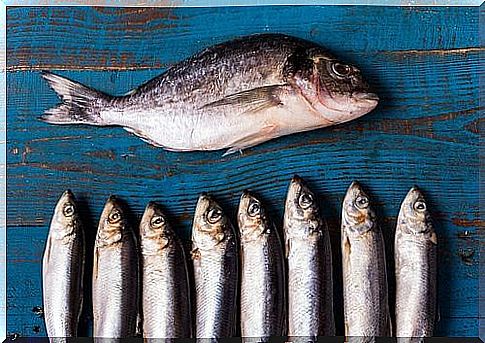
Cholesterol in seafood: is there to worry?
The cholesterol present in some foods is not so worrying when you want to reduce cardiovascular risk and modulate the lipid profile. For this reason, both eggs and seafood, foods that are naturally high in cholesterol, are allowed as part of a healthy diet.
However, if there is a tendency to develop diseases related to uric acid, it is good to pay attention to the consumption of seafood.
Under normal conditions, however, seafood is considered a healthy food and a source of high quality protein. This feature makes them necessary both for those who lead a sedentary lifestyle and for sportsmen.
A healthy diet to improve the lipid profile
Although the relationship between cholesterol and the risk of developing cardiovascular disease has been questioned, it is still important to improve the lipid profile as much as possible. To this end, it is necessary to ensure the intake of foods rich in antioxidants and anti-inflammatory products, rich in omega 3 fatty acids.
Reducing your intake of ultra-processed products is a good option. As for fresh foods, these should be the undisputed protagonists of the diet.
Seafood, along with other animal products, can be part of the regular diet, as they are classified as healthy foods. Their natural cholesterol content shouldn’t be a cause for concern for cardiovascular health.
